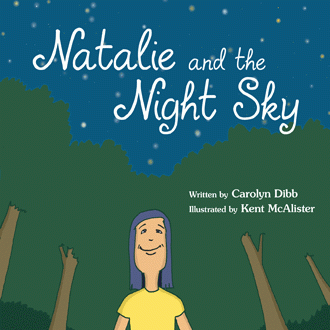Please welcome today’s very special guest, children’s book writer and lover (and fellow Canadian) Carolyn Dibb, M.Ed.
Biblio-‐what?? A conversation about kids, books and healing
As I walk onto the grounds of my daughter’s elementary school this September, I see kids in such different and varying states. Some are ecstatically greeting friends they haven’t seen all summer. In one corner of the field, a game of soccer starts up with a mostly deflated ball. Some children stand quietly beside a parent, uncertain. Others are crying, not sure they can cope with the day that lies ahead. It’s easy to think kids are all alike, but truthfully they are individuals each equipped with their own personalities, temperaments, strengths and challenges. I often wish I had a stash of books on me that I could give to the kids who are feeling a little out of sorts. Something to bolster their spirits, let them know how they are feeling is normal and that they are going to be okay.
I guess I have been a bibliotherapist in the making for quite a while. Probably, since my grade school librarian recommended a book with a character that I could relate to. A whole bunch of reading and a master’s degree later, I still think the right book at the right time can be a very powerful experience. I see the potential for it almost everywhere.
Bibliotherapy
What the heck is bibliotherapy? A question I get asked a lot! Basically it is helping through books. There are two main types:
- Clinical Bibliotherapy: You will often see this when a therapist or doctor gives a client “homework” or books to read. Here they are usually tackling a significant emotional or behavioral issue. Frequently, these are non-fiction books.
- Developmental Bibliotherapy: This one you are probably more familiar with! Teachers, librarians or parents read books to facilitate normal development and self-actualization with an essentially healthy population. Often these books are works of fiction.
- http://bibliotherapy.ehs.cmich.edu
Why does it work?
Kids have a knack for clamming up about their troubles. They don’t want to feel different, or be seen as struggling. They just want to fit in, do well, and have fun. Books can be that indirect way to start conversations that feel less threatening to a child.
In my opinion, books can help us feel normal and understood, which is super important to kids. They can give us inspiration, humour, a different perspective, and sometimes bolster courage. I often encourage kids to borrow bravery from one of their favorite characters if they feel uncertain in a new situation.
How do I do it?
In all honesty, you probably already naturally know how to do developmental bibliotherapy. You are feeling blue, or having a bad day, and you reach for a book with a story you know will lift your spirits.
When working with kids, bibliotherapy is really a springboard for discussion. After reading the book, let the child tell you what they think the story is about. Ask a few questions about it, but generally let the child lead the conversation. It is powerful to know you are not alone in your struggles. Sometimes, it is enough to know that there are others on a path similar to the one you are on now and many who have walked it before you. Reading books to children about other people’s challenges is also an excellent way to facilitate empathy.
Resources
If you notice your child is struggling with a particular issue, go talk to your local librarian. They can offer excellent suggestions on reading material for someone of any age!
Book club for kids:
Girls Leadership is a company focused on empowering girls. They have all the resources you will need to start a book club with parents and their girls. They even have the discussion questions prepared. It’s free and you can check them out at: http://girlsleadership.org/resources/book-‐club-‐sign-‐up-‐form/
The publisher Penguin Books has some a whole section dedicated to books for boys. They have some good suggestions on starting up a book club for boys. http://www.penguin.com/static/packages/us/yreaders/books4boys/index.php
The Carnegie Library of Pittsburgh is an excellent resource. They have created book lists for kids dealing with specific areas like death, school, separation etc. http://www.carnegielibrary.org/kids-‐teens/parents-‐and-‐educators/
Lastly, thank you to Jane the Raincity Librarian for letting me take up space on her page! It’s time for me to go crack open a book. Happy Fall reading!
Carolyn Dibb, M.Ed. (www.carolyndibb.com)

I really enjoyed and learned from this post. Thank you.
Thanks so much for stopping by, I’m glad you enjoyed Carolyn’s post! 🙂
Great info and so helpful! Thanks for sharing at Funtastic Friday.